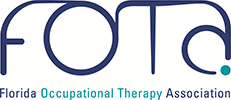Measuring Florida Occupational Therapists’ Interest and Feasibility in Providing Therapy Services to Majority World Nations
Measuring Florida Occupational Therapists’ Interest and Feasibility in Providing Therapy Services to Majo rity World Nations
rity World Nations
“The difference between what we do and what we are capable of doing would suffice to solve most of the world’s problems” -Mahatma Ghandi
The world has become a global society with the ability to achieve an interconnected community. The problem is the world has a global view without global support. Resources are available yet avenues to bring resources abroad in a safe, effective way are scarce. Third world nations, also known as majority world nations or developing world nations, have deficits in care, education, and equipment. Occupational rights are such an integral part of American and European society that the Office of Public Sector Information and the United States Department of Justice have put laws in place for people with disabilities guaranteeing equal access to education, employment, and public buildings and activities. Developed nations have funding that support large amounts of rehabilitation research, development of technology that support mobility, cognition, and sensory while health as a right is very difficult for marginalized populations. Inequitable distribution of health opportunities globally is a major factor in health deficits. It is a joint responsibility of both domestic and external governments to fulfill health rights of majority world citizens (Barugahare & Lie, 2016; Reynolds, 2010). There is a lack of awareness of this need, lack of therapists available to provide services, and lack of safe, economical methods to bring relief to these countries.
The need is providing the educated practitioners to deliver this care. The aim of Advent Health’s occupational therapy student’s study was to spark interest, build awareness, and begin forming a platform to send therapists to impoverished places. An occupational therapist will incorporate life’s eight dynamics of activities of daily living (ADLs), instrumental activities of daily living (IADLs), rest and sleep, work, education, leisure, social participation, and play. Occupational therapy is focused on helping people recover or improve the skills needed for everyday living and working. The diversity in therapeutic care occupational therapy can provide is ideal for the needs of a developing country. Volunteer programs such as Work the World, OT Frontiers, Giving Way, Volunteer Forever, Projects Abroad, Centre for the Rehabilitation of the Paralyzed, and NAPA-OT Field School, are only a few of the volunteer programs available working towards bringing therapeutic relief to developing nations.
Students at Advent Health University conducted a qualitative research study to review the interest of Florida OTs in providing therapeutic services in majority world nations. Majority World is an alternative term for Developing World or Third World. It describes countries in the Caribbean, Central and South America, Asia, and Africa more geographically accurately and less pejoratively than other terms. The method used to conduct the study of interest was completed through individual interview via online survey. The investigators chose to survey Florida residents with active occupation therapy licenses, local to their University. The local research group will build opportunity for possible volunteer trips based out of Florida. The survey was sent to 5,000 licensed occupational therapists in Florida. Inclusion criteria was that each participant had to be a licensed occupational therapist in the state of Florida. The participants in the study were a convenience sample whose email addresses were obtained through the department of health. 5,000 surveys were sent out via survey monkey. This platform, Survey Monkey, provided metrics, follow-up emails, and an easy flow format for the survey development. Nine questions were developed from review of the literature to capture an understanding of therapeutic care in majority world nations. The questions included length of service trip, types of therapeutic care practitioners would desire to provide, monetary expenses, and places of interest.
The research found mixed results in therapist’ interest in providing therapeutic services in majority world nations.
- Responding therapists were open to being providers of care but for short periods of time. The majority of therapists who responded desired to volunteer 1 week of care.
- The majority of therapists reported little or no experience with developing world nations.
- Safety, building funds, and willingness to spend money on a volunteer trip were noted deterrents for therapists interested in participating in majority world care.
- Therapists reported interest in travel specifically to Brazil, Guatemala, India, Mexico, Tanzania, Bangladesh, Rwanda, Finland, Europe, and Australia.
- The majority of therapists surveyed believed the top needs in developing nations are clean water, nutrition, and community mobility. These interests are key areas occupational therapy can bring improvements and aid.
- Half of the surveyed therapists voiced interest in near future involvement with majority world volunteer work.
This study provided valuable information of occupational therapists’ interest and feasibility in volunteering services in majority world nations. The study revealed that there is interest in participating in global occupational therapy care. Almost half of the participants stated that they were interested in traveling abroad themselves and providing services in the near future. This indicates that many occupational therapists would be interested in volunteering if they had an opportunity. The results also indicated that therapists who may not be able to travel are interested in supplying equipment and providing financial support.
The study reviewed areas of global need, volunteer interest, and availability to volunteer for international health relief. Therapeutic care provides remedial and compensatory methods for individuals to learn how to live a meaningful life and develop new methods for activities of daily living, job techniques to reintegrate into their work life, and social interaction. Without volunteers providing therapeutic relief to these majority nations quality of life will be reduced and lifespan possibly shortened. Occupational therapy is committed to actions that promote health, prevent disease and disability, and increase the availability of services to people in need (Bourke-Taylor & Hudson, 2005; Breitbart, 2011; Thibeault, 2006). Einstein said, “Those who have the privilege to know, have the duty to act.” As licensed therapists equipped with knowledge of health safety, therapeutic care, and mobility accessibility we have the duty to respond to the majority world’s needs. Educating others and participating in organizations such as Work the World, OT Frontiers, Giving Way, Volunteer Forever, Projects Abroad, Centre for the Rehabilitation of the Paralysed, and NAPA-OT Field School that have established an outreach is the start to a global change for quality therapeutic care worldwide.
